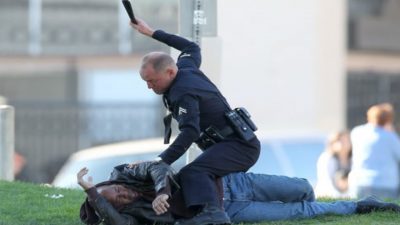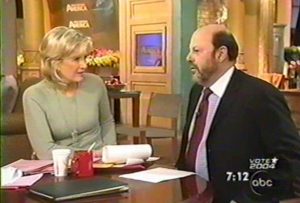
Attorneys for Desert Hot Springs are heading back to court after a three-judge appellate panel allowed a wrongful termination lawsuit from a former police officer to continue.
New case law revived the legal complaint of Andrea Heath, who claimed she was harassed, retaliated against and forced into retirement in 2011 for reporting her fellow officers’ use of excessive force to federal investigators nearly a decade ago. Heath committed suicide in 2013 but her family is carrying on with the case. Most of the defendants, including former police chiefs and other officers, no longer work for the city.
Throughout more than a decade with the department, Heath claimed she saw numerous Desert Hot Springs officers “falsely arrest, beat, tase, pepper-spray and otherwise torture” detainees and arrestees. She reported that behavior to the FBI — which was already investigating the department — in 2007.
That triggered harassment and intimidation from her colleagues, Heath claimed in a federal civil lawsuit filed in 2012 in which she sought more than $5 million in damages. Officers refused to back her up on dangerous calls and repeatedly referred to Heath as a “rat.”
Between monthlong stretches of medical leave for stress and unspecified surgeries, Heath alleged she was assigned to patrol cars that wouldn’t start and that officers removed the computer from her police cruiser. Other people tampered with her office computer.
The city says Heath’s lawsuit lacks merit.
The case was “nothing more than the story of a poorly performing employee, who the city made every effort to train and bring up to standards, and who after extensive leaves of absence … was found not fit for duty and retired on disability,” attorneys for Desert Hot Springs argued in court documents.
The department told Heath not to cooperate with the FBI investigation during her time off, she claimed.
Despite serving with the department since 1996, Heath was demoted to trainee status in 2010, she said in court documents. The officer she was assigned to work with yelled at her in front of suspects and made her handle high-risk calls by herself.
“The work environment was unsafe, hostile, a form of retaliation, and was getting worse as each day went on,” Heath’s attorney Jerry Steering wrote in a legal complaint.
Heath eventually testified before a federal grand jury about conditions at her police department. Two officers were later indicted for civil rights violations.
One of them — Sgt. Anthony Sclafani, who for a time served as Heath’s immediate supervisor — was sentenced to four years in prison in 2012 for using excessive force against two suspects. Another, former Officer David Raymond Henderson, pleaded guilty to a misdemeanor civil rights violation, drawing a one-year probation sentence and 200 hours of community service.
The city placed Heath on disability retirement in 2011, claiming she was unfit to work.
Legal arguments continue
Before tackling Heath’s accusations, Desert Hot Springs attorneys argued she had no legal standing to bring the lawsuit. She waited too long to sue, the city argued, and didn’t exhaust all other options before turning to the courts.
Steering, Heath’s attorney, conceded that the statute of limitations keeps him from suing over anything that happened before March 2010. But he can still cite Heath’s forced retirement, which he believes is more than enough on which to build a case.
Heath contended that by removing her for reporting wrongdoing, the city denied her First Amendment right to free speech. But the city claimed that she spoke to the FBI as a public employee — not a private citizen. Therefore, she couldn’t make a claim based on her right to free speech.
A U.S. District judge agreed with the city in 2013, dismissing the case. Heath appealed. She later fatally shot herself in the head, authorities said.
Last year, the 9th U.S. Circuit Court of Appeals decided Heath’s son and the father of her young daughter could carry on with the appeal. Then, about a month and a half ago, the court gave the Heaths another chance.
The appellate court applied a new legal principle that wasn’t the standard when the case first went before the lower court. It sent the lawsuit back to U.S. District Judge Philip Gutierrez, and the parties are due back in his courtroom at the end of the month to decide on next steps.
Laura Kalty represents the city and several other defendants, including former police chiefs Patrick Williams and Kate Singer and many other officers. She said she plans to file another motion to dismiss the case.
“I do think there are some significant legal problems with her claims,” Kalty said. “It’s really the legal basics. We believe her claims are legally deficient.”
Sloan Simmons, who’s representing Sclafani and former officer Paul Tapia, plans to argue the case against them is moot. The prevailing case law at the time of Heath’s cooperation with the FBI didn’t protect her speech, Simmons said, so she can’t bring claims against his clients.
Kia Farhang is a local reporter for The Desert Sun. He can be reached at (760)778- 4625, Kia.Farhang@desertsun.com or on Twitter @KiaFarhang.
Timeline of the Andrea Heath case
2007: Heath begins cooperating with an FBI investigation into the Desert Hot Springs Police Department, which evenutally leads to indictments of two of her colleagues.
2011: The department puts Heath on disability retirement.
2012: Heath sues the city and several of its employees, claiming wrongful termination and a violation of her First Amendment rights.
2013: A U.S. District Court judge dismisses the case. Heath appeals. She later commits suicide.
2015: A three-judge appellate panel revives Heath’s lawsuit based on new case law. A hearing is set for the end of August.







